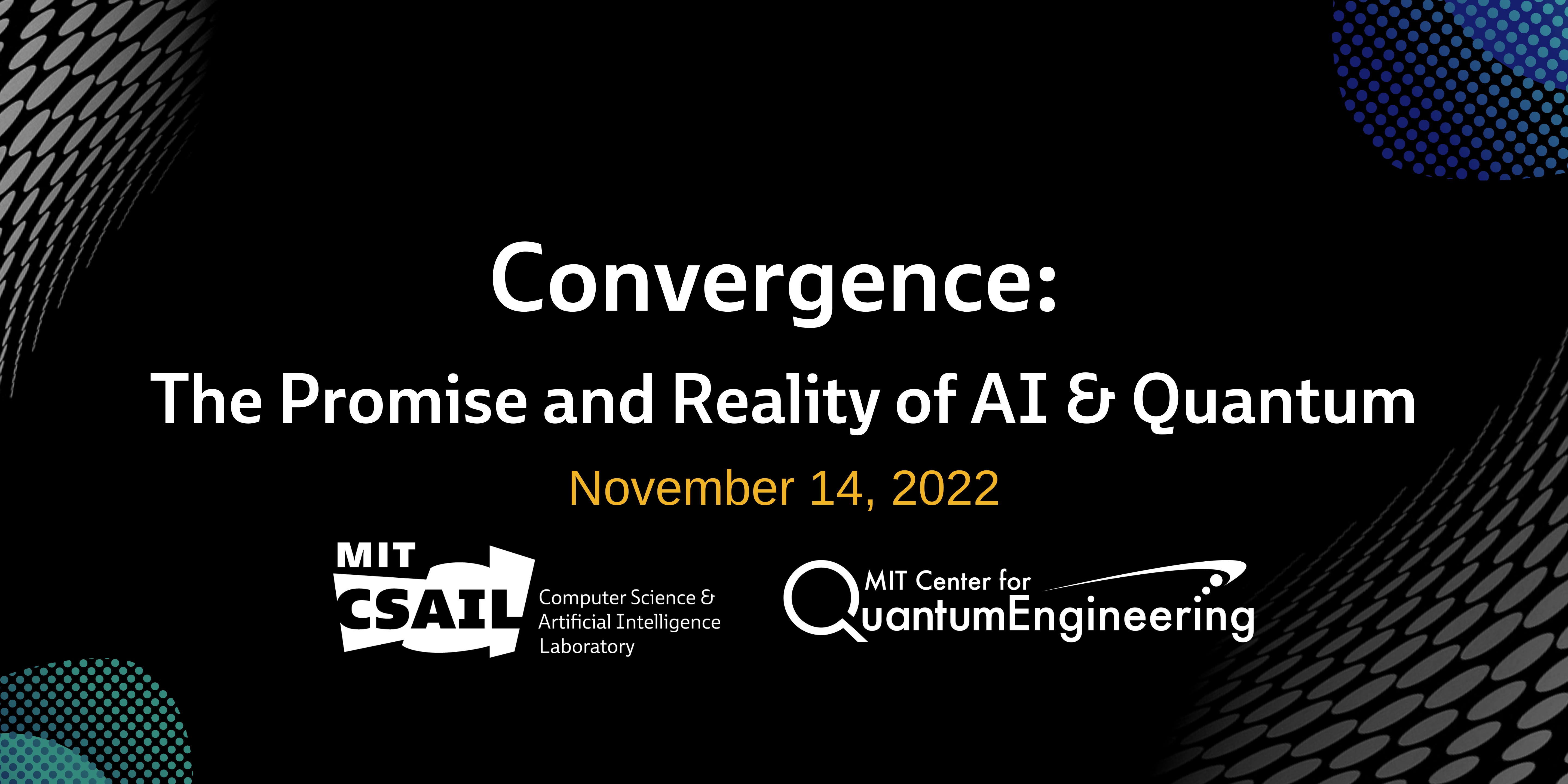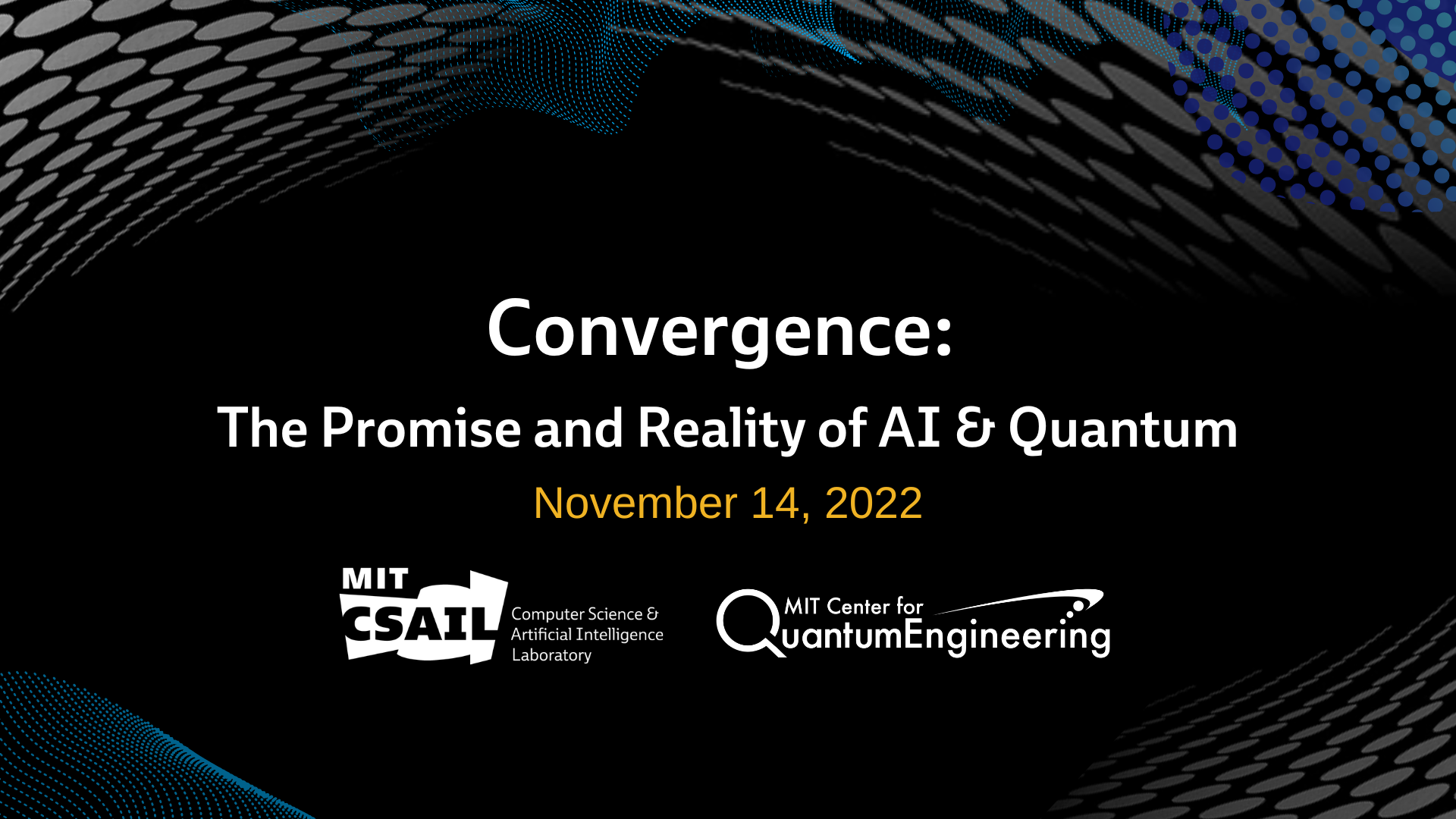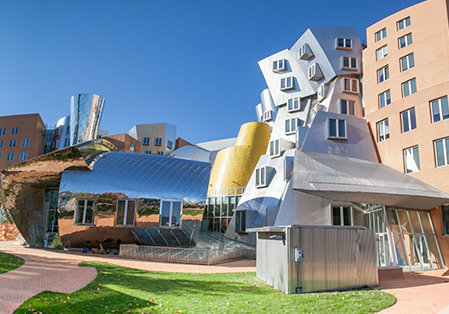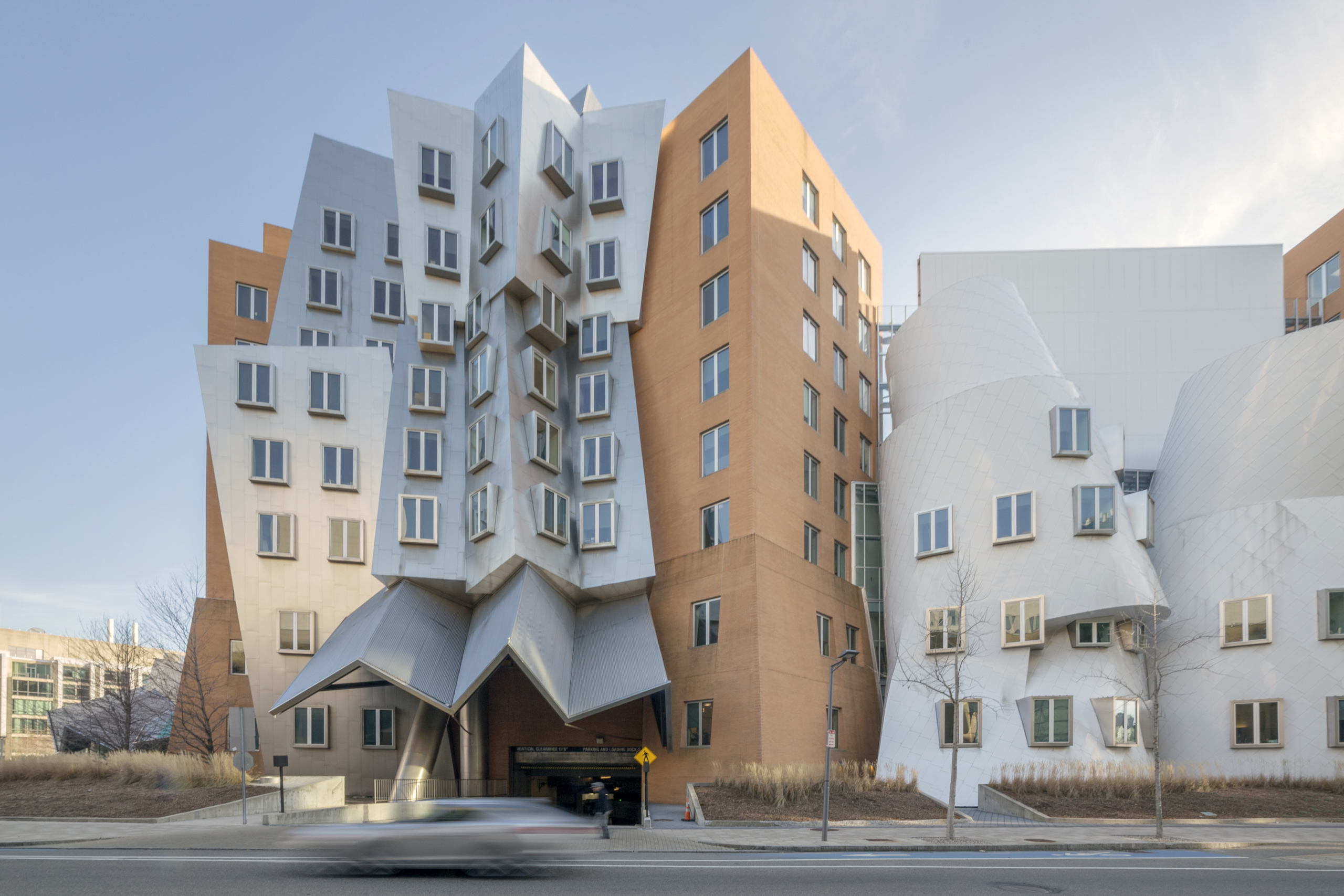
Few areas in computer science have generated the kind of attention Artificial Intelligence and quantum computing have enjoyed in recent years. These technologies are often discussed but often misunderstood. How can industries determine what’s real and what’s overblown hype?
MIT’s Computer Science and Artificial Intelligence Laboratory and MIT’s Center for Quantum Engineering are teaming up to assemble leaders across AI and Quantum to discuss the promise and practical realities - as we know them today - about quantum computing, Artificial Intelligence, and how they will affect the economy and the world. Join us November 14 for Convergence: The Promise and Reality of AI & Quantum a one-day program that is essential for those wanting to understand where quantum research stands and harness the power of quantum and AI. This program will be held in-person at MIT and virtually.
Learn more about conference speakers here.
Conference Schedule
- Opening Remarks | 9:15-9:25am
- Lori Glover: Managing Director, MIT CSAIL Alliances
- Jeff Grover, Research Scientist, MIT Engineering Quantum Systems
- Professor William Oliver, Director, MIT Center for Quantum Engineering | Professor, MIT EECS
- Professor Daniela Rus: Director at MIT CSAIL | Professor, MIT EECS
- Quantum Keynote | 9:25-9:55am
- Professor William Oliver, Director, MIT Center for Quantum Engineering | Professor, MIT EECS
- AI Keynote | 9:55-10:25am
- Professor Daniela Rus, Director at MIT CSAIL | Professor, MIT EECS
- Keynote Q&A | 10:25-10:45am
- Professor William Oliver, Director, MIT Center for Quantum Engineering | Professor, MIT EECS
- Professor Daniela Rus, Director at MIT CSAIL | Professor, MIT EECS
- Panel 1: Where We Are with Quantum and AI (Really!) and Where We Are Going | 11:00-12:00pm
- Moderator: Jeff Grover, Research Scientist, MIT Engineering Quantum Systems
- Professor Isaac Chuang, MIT Physics
- Henriette Fleischmann, Co-Founder & COO, Hosta a.i.
- Professor Aram Harrow, MIT Physics
- Kalyan Veeramachaneni, Principal Research Scientist, LIDS
- Panel 2: Advances Have Real Impact: Industry Use Cases | 1:00-2:00pm
- Moderator: Kathleen Kennedy, Executive Director, MIT Center for Collective Intelligence & Senior Director, MIT Horizon
- Yudong Cao, CTO & Co-Founder, Zapata Computing
- Professor Samuel Madden, MIT EECS
-
Tim Menke, Co-Founder & COO, Atlantic Quantum
- Michael Rappaport, Head of Emerging Technology, Global Functions Innovation, HSBC
- On the Horizon | 2:00-2:30pm
- Professor Manolis Kellis, MIT EECS
- Professor Kevin O’Brien, MIT EECS
- Professor Vladan Vuletic, MIT Physics
- Fireside Chat with Professor William Oliver & Professor Peter Shor | 2:45-3:15pm
- Kathleen Kennedy, Executive Director, MIT Center for Collective Intelligence & Senior Director, MIT Horizon
- Professor William Oliver, Director, MIT Center for Quantum Engineering | Professor, MIT EECS
- Professor Peter Shor, MIT Mathematics
- Panel 3: Considerations in Setting a Quantum AI Strategy | 3:15-4:15pm
- Moderator: Kathleen Kennedy, Executive Director, MIT Center for Collective Intelligence & Senior Director, MIT Horizon
- Shouvanik Chakrabarti, Applied Research Lead, JPMorgan Chase & Co.
- Douglas Hamilton, Head of Artificial Intelligence, Nasdaq
- Shengtao Wang, Senior Research Scientist, QuEra Computing
- Marcin Ziolkowski, Emerging Technologies Manager, BMW Group
To register for Convergence: The Promise and Reality of AI & Quantum, visit event registration.
Artificial Intelligence is a well-known name for an often-misunderstood field. Originally coined in 1956 by Marvin Minsky, John McCarthy, Nathaniel Rochester, and Claude Shannon in a summer research proposal, the term AI encompasses, as McCarthy later defined it, “the science and engineering of making intelligent machines, especially computer programs.” Since its conception in the 1950’s, AI has grown from science fiction promise to industry juggernaut that will affect almost every aspect of human life… if it doesn’t already.
Just look at the numbers. Global investment in AI technology grew from $46 billion in 2020 to $93.5 billion in 2021. A McKinsey survey of executives and managers found that 56% of all respondents reported at least one way AI is being used in their businesses, up from 50% in 2020. Out of the 9,120 patents IBM registered in 2020, more than 2,300 of them were related to AI. The technologies being developed will impact transportation, manufacturing, healthcare, education, customer service, and so much more.
Here at MIT, AI models are being developed that can detect Parkinson’s, control digital manufacturing, dress people, predict how proteins will attach, and even prevent traffic accidents before they happen. In a field changing impossibly fast, it’s easy to imagine how overcautious players might get left behind.
On the other hand, Quantum could upend everything as we know it. As quantum computing pioneer, Professor Peter Shor puts it, “the first quantum computers that can break RSA technology are going to be used for breaking communications [between countries].” With an estimated market share of $0.5 billion in 2021, quantum computers haven’t yet caught fire the way AI has. But that doesn’t mean they won’t. Global superpowers are putting big money into quantum-related research, with the US setting aside $1.3 Billion, the European Union $7.2 Billion, and China a whopping $15 billion to invest in quantum computing. Honeywell predicts that the quantum computing industry will reach $1 trillion over the next three decades.
Of course, there are more benevolent applications for quantum computers, such as preventing economic recessions, predicting protein folding, and, especially relevant to this conference, opening up new possibilities for artificial intelligence. Whatever the intended application, the race to develop quantum computers has only just begun, and, as our keynote speaker Professor William Oliver says, “It’s hard to say who’s going to win this marathon.”
If both fields are exciting on their own, they’re exhilarating in tandem. The combination of a booming AI market and the equally explosive field of quantum computers could prove a world-changing cocktail. Adaptations in machine learning will help researchers create the novel hardware and algorithms that will be necessary for quantum computers, and in turn the speed and complexity of quantum computers will elevate AI to unprecedented heights. This iterative feedback loop is already in motion with no signs of slowing down.
We believe in preparing industries for the future by giving them the tools they need to navigate the ever-changing waters of technology. Artificial intelligence and quantum computers are two such technologies, all but guaranteed to affect business everywhere. It only makes sense to be well-informed about the promises and pitfalls current researchers are facing.
Convergence: The Promise and Reality of AI & Quantum will provide an in-depth overview of where AI and quantum computing currently stand, where they’re going, and what they promise to be both together and separately. In this conference, we will cover how such technologies can be applied to your business, strategy considerations going forward, and what the reality is on the ground. Attendees will hear the facts from top MIT scientists, innovators in their field, about what is just media hype and what is thrillingly, unbelievably real.






